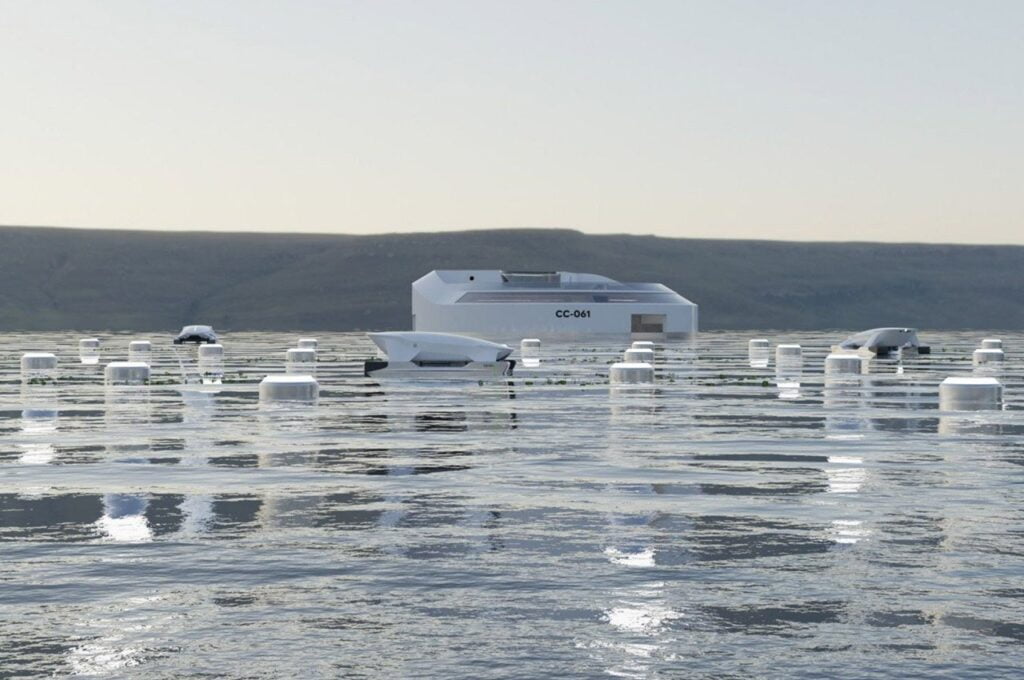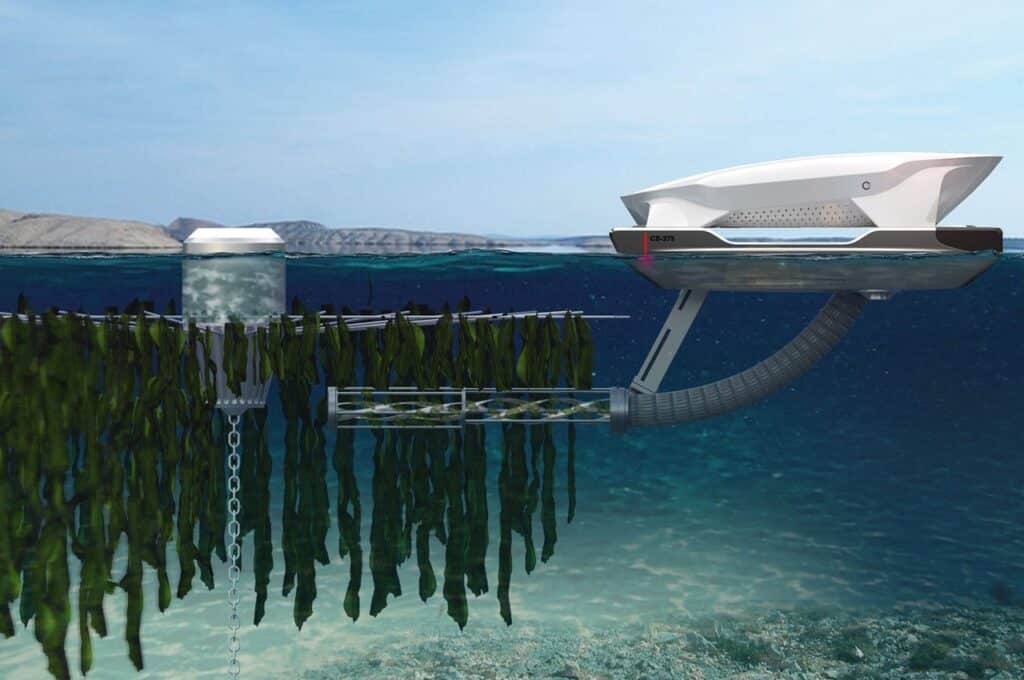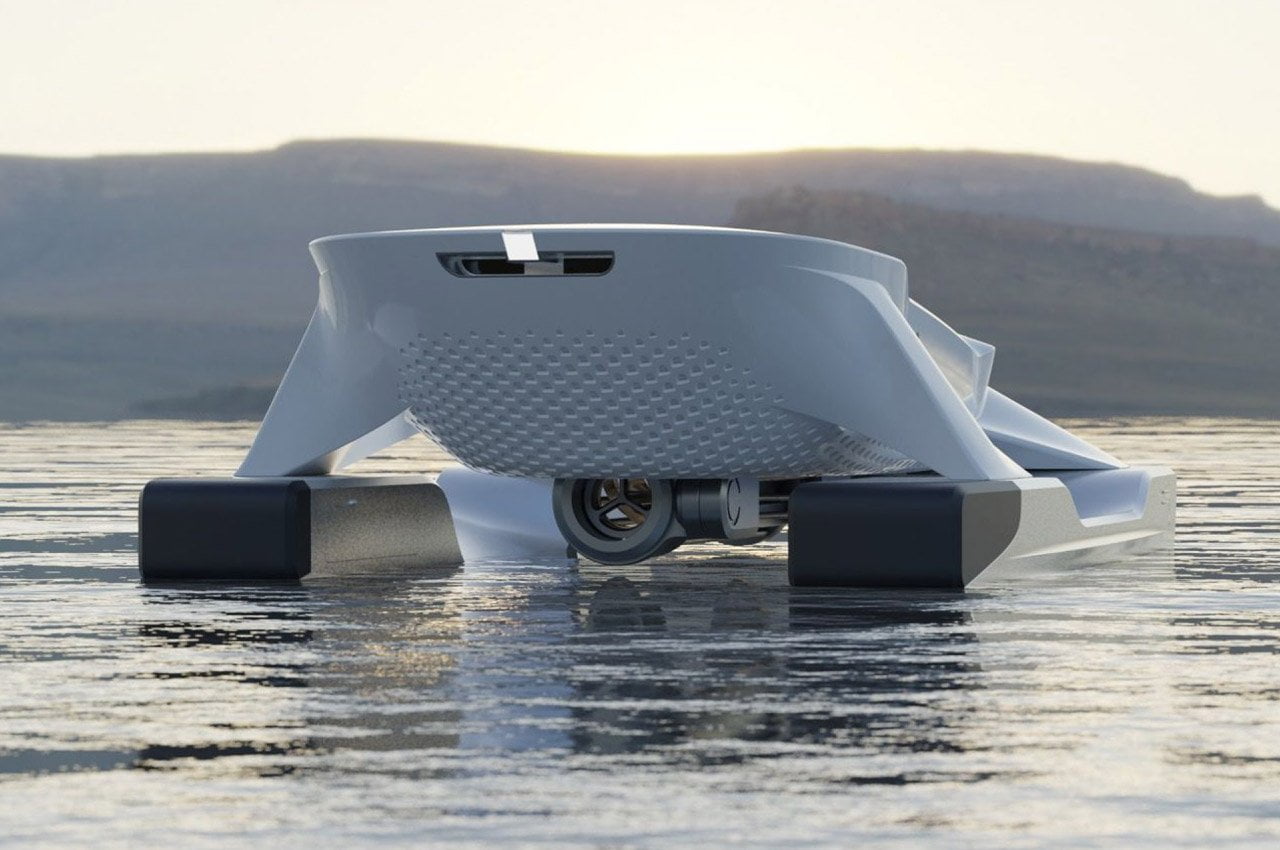In the future, protecting the environment and all its resources will be critical to the health of our planet. It will be crucial to make the best possible use of natural resources as we move towards a conscious and attentive lifestyle. Precision agriculture, cellular agriculture and aquafarming can help us achieve our goals.
For water farming in particular, this concept developed by Bernhard Buttner by HTW Berlin could be a really good example. It's called Cerberus, and it shows an interesting approach to autonomous harvesting and optimization of ecological resources. A solution that can work both from an environmental and an economic point of view. What is it about?

Autonomous agricultural ship
Cerberus is essentially an ultramodern ship shaped like a catamaran (to increase its stability). As it proceeds at sea, its collection system extracts the algae and filters its contents, bringing it on board or storing it for later use in special capsules anchored to the seabed.
The concept makes a trend (that of water farming, or aquaculture) already present in permanent form autonomous and itinerant. Some time ago I told you about the first underwater farms in the world (one of these is located in Italy) and how they grow vegetables and herbs cheaper, under the surface of the water.
If it comes to aquafarming, however, a great resource is represented by seaweed. There are many types, both floating on the surface and below: useful as food and basis for drugs, biofuels, clothing, even 3D prototyping.

Autonomous algae aquafarming
In the intentions of the developer, Cerberus will initially be a semi-autonomous system. Eventually, with the evolution of its artificial intelligence, it will move in complete autonomy to collect raw material in a sustainable and non-polluting way.
It could be one of the most interesting solutions for the future of our planet. What do you think?


